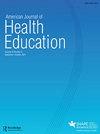健康规划的创新:大学生受益于生物-心理-社会精神模型框架下的一系列互补的健康改善方法
IF 0.8
Q4 PUBLIC, ENVIRONMENTAL & OCCUPATIONAL HEALTH
引用次数: 0
摘要
摘要背景美国心理协会报告称,Z世代在精神和身体上的痛苦比任何其他群体都要多。目的通过生物-心理-社会-精神模型的视角,测量为期16周的在线大学水平“健康补充疗法课程”对大学生健康和幸福感的影响。方法采用混合方法、对照、重复测量的方法,在大学水平的在线同步健康课程中进行研究。课程包括同情、幸福、正念、冥想、瑜伽、服务、感恩、长寿、运动等方面的科学和实践。结果有42名18-23岁的学生参加。使用自我同情量表(p<.005)、自我同情判断量表(p<.001)、精神幸福感量表(p<.047)、,和彭伯顿幸福指数(p<.007)。自我同情量表也显示了受试者内部的显著影响(p<.001)。定性数据显示,同情心、幸福感、睡眠、锻炼和健康习惯、感恩、正念、精神感受等方面有所改善。基于生物-心理-社会-精神模式的健康教育是有效的。健康教育实践一种完整的、互补的健康教育方法对大学生有着广泛、积极的影响。AJHE自学测验通过SHAPE美国在线研究所(SAOI)在线为本文提供http://portal.shapeamerica.org/trn-Webinars本文章由计算机程序翻译,如有差异,请以英文原文为准。
Innovation in Health Programming: College Students Benefit from an Array of Complementary Approaches to Health Improvement Framed by the Biopsychosocial-Spiritual Model
ABSTRACT Background The American Psychological Association reports that Generation Z are suffering mentally and physically more than any other group. Purpose Measure the effects of a 16-week, online college-level “Complementary Therapies in Health Course” through the lens of the biopsychosocial-spiritual model on measures of health and aspects of well-being in college students. Methods A mixed method, controlled, repeated measures study delivered in an online synchronous college-level health course. The course curriculum included the science and practice of compassion, happiness, mindfulness, meditation, yoga, service, gratitude, longevity, movement, and more. Results 42 students 18–23 participated. A significant between subjects cross-over effect demonstrating improvements in the intervention group and deterioration in the control group was found using the Self Compassion Scale (p < .005), Self-Compassion subscale of Judgment (p < .001), Spiritual Well-being Scale (p < .047), and the Pemberton Happiness Index (p < .007). The Self Compassion Scale also revealed a within subjects significant effect (p < .001). Qualitative data revealed improvements in compassion, feelings of happiness, sleep, exercise and health habits, gratitude, mindfulness, spiritual feelings, and more. Discussion Health education predicated on the biopsychosocial-spiritual model is efficacious. Translation to Health Education Practices A whole person, complementary health approach to education programming has widespread, positive effects on college students. A AJHE Self-Study quiz is online for this article via the SHAPE America Online Institute (SAOI) http://portal.shapeamerica.org/trn-Webinars
求助全文
通过发布文献求助,成功后即可免费获取论文全文。
去求助
来源期刊

American Journal of Health Education
PUBLIC, ENVIRONMENTAL & OCCUPATIONAL HEALTH-
CiteScore
1.70
自引率
10.00%
发文量
36
期刊介绍:
AJHE is sponsored by the American Association for Health Education of the American Alliance for Health, Physical Education, Recreation and Dance. The mission of the American Association for Health Education(AAHE) is to advance the profession by serving health educators and others who strive to promote the health of all people through education and other systematic strategies.AAHE addresses the following priorities •Develop and promulgate standards, resources and services regarding health education to professionals and non-professionals •Foster the development of national research priorities in health education and promotion. Provide mechanisms for the translation and interaction between theory, research and practice.
 求助内容:
求助内容: 应助结果提醒方式:
应助结果提醒方式:


